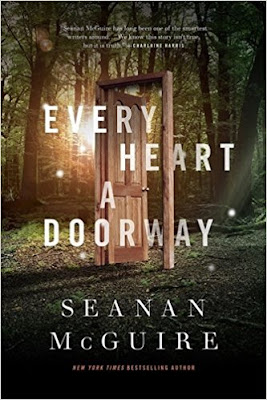Kirkus Style Review: Nox
NOX
by Anne CarsonPub Date: April 27, 2010
ISBN: 978-0811218702
Page count: 192 pp
Publisher: New Directions
Review Posted Online: February 10, 2018
In her return to poetry after a five-year hiatus, Carson explores the depths of grief following the death of her brother through a collection of artifacts.
When Anne Carson's brother died in Copenhagen in 2000, she didn't find out until two weeks later. To cope with the loss, she wrote poetry, collected old photographs and letters, examined language, and sketched and scribbled her way to some semblance of a meaning for his death and, ultimately, his life. Her collection of artifacts became Nox, all the pieces coming together in an accordion-style set of pages, haphazard yet neatly bound all at once inside a fold-over box. Carson mixes the writing of her brother with an examination of Catullus's poem 101: "for his brother who died in the Troad." As she examines Catullus's poem, so she examines the life of her brother--of whom she had grown distant over the years. She writes:
Prowling the meanings of a word, prowling the history of a person, no use expecting a flood of light. Human words have no main switch. But all those little kidnaps in the dark. And then the luminous, big, shivering, discandied, unrepentant, barking web of them that hangs in your mind when you turn back to the page you were trying to translate.Carson's words sing to the spiral of grief that one finds in a vortex of thought. She captures the idea of trying to focus on something--anything--else, yet still coming back to the loss, with such laser focus that her amalgamation of pages is impossible to ignore. She writes early in Nox of the idea of "overtakelessness," or the idea of "that which cannot be got round. Cannot be avoided or seen to the back of. And about which one collects facts- it remains beyond them." This idea of "overtakelessness" describes Nox as well: it is a book to be reckoned with. Readers of experimental essays and memoirs such as Jenny Boully's The Body and Claudia Rankine's Citizen and Don't Let Me Be Lonely will find themselves at home in Carson's poetic prose and experimental style.
While the first look at the accordion-volume is one that feels overwhelming, to become buried in its page is to be buried in exquisite language, memory and voice.



What an exquisite review. I have never heard of this book, but I am ready to go find it. I love this idea of the personal archive turned into a book, and that it seems like it is a very tactile experience. I don't often purchase books. I live in a small apartment, and shelf space is precious, so the books I do own hold a special significance. They are books that beg to be read more than once, because you find something new with each reading. This sounds like a book to own because you can return to it again and again.
ReplyDeleteMandy, you are exactly right. In fact, on my most recent journey through this book, I was able to connect more with the Catullus poem as Carson examined it, while still remembering my first reading of the book and reflecting on how little I understood it then. It is so worth the read, and, if you ever find a hallway long enough, it is certainly worth it to spread the whole thing out and just look at it in its entirety.
DeleteI completely agree with Mandy! Your writing is positively beautiful, and it really complements what you say about the book itself.
ReplyDeleteI'd never heard of this title either, but I'm adding it to my TBR list! And mentioning it to my mother: she absolutely adores books that tackle difficult life experiences, so this should be right up her alley!
Oh boy, can I just say that I would be super excited to do a readers’ advisory interview with your mother? I have SO MANY books she might enjoy. If she hasn’t read Joan Didion’s The Year of Magical Thinking yet, that is a must. Some other, more obscure titles she should try (that are a little less experimental than Nox) are Bonnie J. Rough’s Carrier: Untangling the Danger in my DNA and Steven Harvey (not the tv personality)’s The Book of Knowledge and Wonder. Seriously, if she ever needs recommendations, I am so prepared for it.
DeleteWell, Catherine, I confess I went to your blog to comment on your "adventure" post but when I saw the photo of this goofy kid in swim trunks and goggles, I had to stop there and read more!
ReplyDeleteThis is not a book I've heard of, but your Kirkus-style review couldn't have been more on-the-nose. I love this turn of phrase particularly, "Carson's words sing to the spiral of grief that one finds in a vortex of thought."
Very good use of a quote from the book and excellent succinct Kirkus-like summary at the end. Well done!!!
Fantastic Kirkus Review! Your opening and closing lines are solid and succinct, and your summary in the middle is eloquent and full of description. Full points!
ReplyDelete